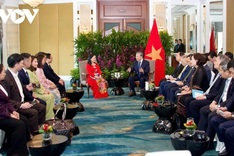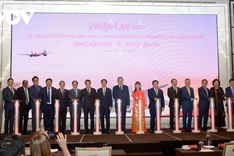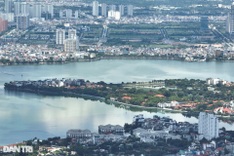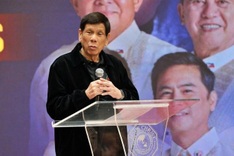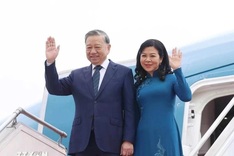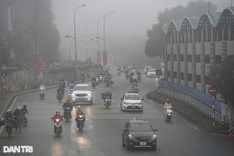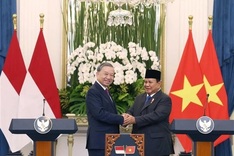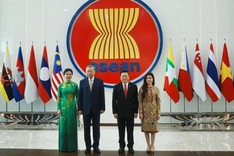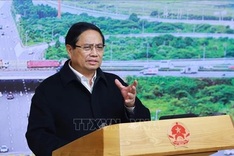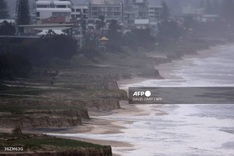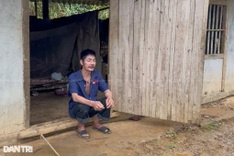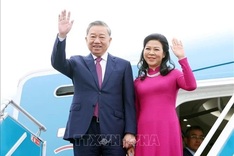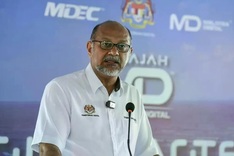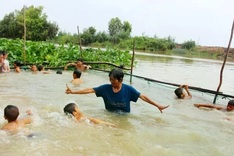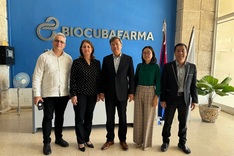A five-year project which aims at shifting Vietnam's private sector toward sustainable energy use has been officially launched in southern Tây Ninh City.
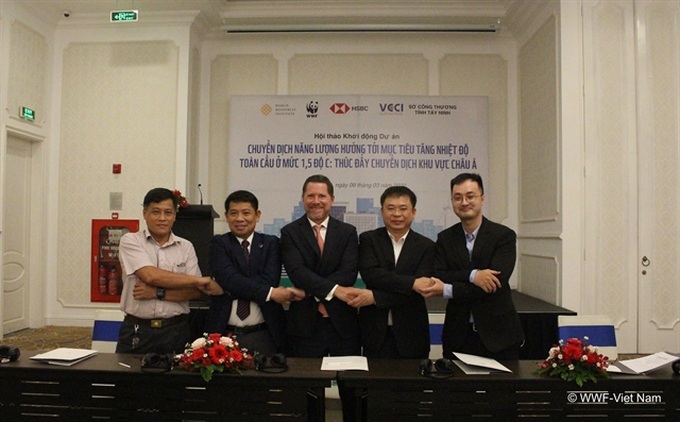
Representatives of WWF-Viet Nam and partners agree on a five-year project to transform Vietnam's private sector toward sustainable energy use. — Photo courtesy of WWF-Viet Nam
The project 'An energy transition for a 1.5 degree world: Accelerating Progress in Asia,' will harness corporate, sectorial and subnational levels to help accelerate the adoption and scale-up of energy efficiency and renewable energy solutions in Tây Ninh Province.
The project, sponsored by HSBC, is implemented by WWF-Vietnam and World Resource Institute through the Clean Energy Investment Accelerator in cooperation with Tây Ninh's Department of Industry and Trade and Vietnam Chamber of Commerce and Industry.
The southern province has been a highlight for foreign investment with an annual growth rate of 7.2 per cent, higher than other locations in the country.
It has 19 industrial parks and clusters, with textile and garment critical industries.
Data from the Vietnam textile & apparel industry directory in 2020 shows that from 2016-20, the province attracted the highest number of foreign direct investments (FDI) for the Vietnam Textile & Garment sector, with 48 projects and FDI legal capital up to US$1.272 billion.
While the global textile and garment industry is setting increasingly ambitious climate change targets across global supply chains, this project will help position the local industry to be successful in meeting these requirements.
Tây Ninh has excellent potential for solar energy with an average of up to 2,400 hours of sunshine per year, which attracts high interest in solar project investment. According to the provincial People's Committee, nine solar farms are operating.
Given the extensive benefits of clean energy and the strong will of provincial leaders, the province could become the leader in transforming its industrial sectors to a clean and green operation, especially in the energy sector.
In the next four years, the project will work mainly with Textile & Garment companies in Tây Ninh to identify their existing problems and challenges in using renewable energy; adopt energy efficiency solutions and develop bankable projects with at least two big textile and garment companies or industrial park applying energy efficiency and renewable energy solutions.
The project will also support Tây Ninh DOIT in rolling out its plan to promote energy efficiency and renewable energy solutions to businesses.
Other key project activities include capacity building on energy efficiency and renewable energy solutions, developing a roadmap for energy efficiency and renewable energy solutions for subnational actors and building guidebooks and tools for commercial and industrial energy users to increase energy efficiency in Tây Ninh Province.
The project is a part of The Climate Solutions Partnership, a five-year collaboration that combines HSBC's financial expertise with the technical knowledge and experience of the WRI and WWF and a network of local partners in scaling up climate innovation ventures and help transition the energy sector towards renewable in Asia.
Vietnam is one of the five target countries of the Climate Solutions Partnership besides China, India, Indonesia, and Bangladesh to accelerate progress toward energy efficiency and renewables.
Public energy solutions
The partnership sets targets to accelerate the transition to net-zero by creating more opportunities for climate solutions to become commercially viable and protecting and restoring biodiversity.
It will work with businesses, financial organisations, government bodies and research institutions, to remove the barriers to commercial financing for innovative climate solutions.
Tim Evans, CEO of HSBC Vietnam, said: "There is now a growing realisation that we are reaching the point of no return in terms of climate change. To achieve a global net-zero target, every organisation and every person has an important part to play. As a bank, the most significant impact we can make is helping our clients transition to producing lower carbon emissions by providing a source of finance that facilitates the investment needed.
"To support the Vietnamese Government's aspirational climate goals and its ambitious commitments to become a net-zero economy by 2050 following the COP26 meetings, we have committed to helping arrange up to $12 billion of direct and indirect sustainable financing for the corporate sector in Vietnam by 2030.
"We are also trying to lead by example, and as a result we are setting ourselves a target to make our own operations net-zero by 2030 or sooner. To accelerate the global transition to net zero, we also want to unlock climate solutions such as clean-tech innovation, sustainable infrastructure and nature-based solutions. This is why we have joined forces with WRI and WWF to form a philanthropic partnership to help climate solutions become a commercial reality and have real-world impact."
Dr Văn Ngọc Thịnh, CEO of WWF-Vietnam, said: "Climate change is a global crisis that affects every single country. Ignoring it and not taking immediate action will put us all at risk of an uncertain future. WWF-Vietnam is content to work with HSBC and WRI/CEIA to support Vietnam realising the country's NDCs and achieving Net Zero, which is only possible with a considerable reduction in greenhouse gas emissions, especially from the energy sector via energy efficiency and renewable energy solutions."

